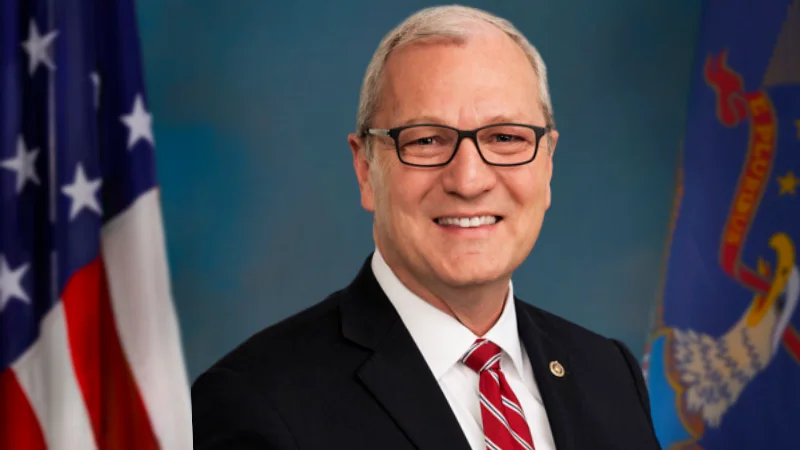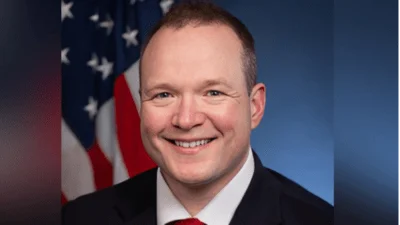Senator Kevin Cramer, US Senator for North Dakota | Senator Kevin Cramer Official website
Senator Kevin Cramer, US Senator for North Dakota | Senator Kevin Cramer Official website
After more than a month of deadlock, the U.S. Senate has voted 60 to 40 to end the longest government shutdown in American history. The bill extends current funding through January 2026 and includes three appropriations bills for Fiscal Year 2026. These bills provide support for military construction, veterans’ affairs, agriculture, rural development, food safety, technology infrastructure, and national security programs.
Eight Senate Democrats joined Republicans to advance the measure. The legislation will now move to the House of Representatives for further consideration.
The appropriations package aims to reopen the government and provides funding for farmers and ranchers, fully funds veterans’ medical care, invests in rural infrastructure and housing, supports business development, and backs around 300 military construction projects nationwide. It also contains provisions that prohibit the Department of Veterans Affairs from purchasing technology equipment made by certain Chinese companies influenced by the Chinese Communist Party. In addition, it seeks to protect American farmland from foreign adversaries.
Senator Kevin Cramer (R-ND) commented on the passage: “The passage of this package is big, it’s a win for our veterans, law enforcement officers, farmers, ranchers, and manufacturers, as well as every American across the nation. It’s really important because not only does it reopen the government, which is the fundamental point, but it pays the people who’ve earned their pay and it keeps vital programs running, all while delivering some key wins for North Dakota which afterall is my first priority. It provides funding for the Jamestown Armory and ensures North Dakota is not neglected when we pursue certain suicide prevention grants for veterans. The bill supports North Dakota’s farmers and ranchers through programmatic funding increases by prohibiting the closure of FSA county offices, which we know are critical to servicing our farmers and ranchers every day. This vote really reflects the Senate’s commitment to those who serve, those who produce, and keep our nation strong. I hope the House will act swiftly to get this across the finish line and reopen the government by mid-week.”
The Military Construction and Veterans Affairs Appropriations bill secures funds to design an armory for North Dakota Army National Guard in Jamestown. It continues support for Supportive Services for Veterans Families (SSVF), serving counties throughout North Dakota via regional Community Action Agencies.
As part of his role on the Senate Veterans Affairs Committee, Senator Cramer has advocated for improved mental health care access for veterans regardless of location. Earlier this year he introduced bipartisan legislation with Senator Chris Coons (D-DE) aimed at prioritizing suicide prevention grant applications from states like North Dakota that have not previously received such grants.
The bill also prohibits VA purchases of technology equipment from specified Chinese manufacturers listed by several federal departments due to concerns about foreign influence.
In agriculture-related measures within this legislative package, there are increased allocations supporting farm loans through agencies like Farm Service Agency (FSA). The legislation prevents closures of FSA county offices considered essential in serving local producers daily needs such as protecting crops/livestock from disease or pests; facilitating marketing efforts; supporting meat/poultry inspection programs; aiding compliance with electronic identification tag requirements; expanding broadband access in remote areas; bolstering agricultural research initiatives via institutions including Agricultural Research Service/National Institute of Food & Agriculture/Agriculture & Food Research Initiative; strengthening animal health/biodefense/biosecurity capabilities; maintaining USDA's seat on CFIUS (Committee on Foreign Investment in United States) regarding food supply chain protection; increasing resources toward food safety systems under FDA/state inspection programs while regulating intoxicating hemp-based products sales yet preserving non-intoxicating CBD/industrial hemp goods.
Food assistance programs such as Commodity Supplemental Food Program/Special Supplemental Nutrition Program benefit seniors/mothers/children respectively.
Legislative branch components include funding authorities/reimbursements related to Capitol Police mutual-aid operations plus allocations toward maintenance/security needs at Capitol complex/Library of Congress/Congressional Research Service.






 Alerts Sign-up
Alerts Sign-up